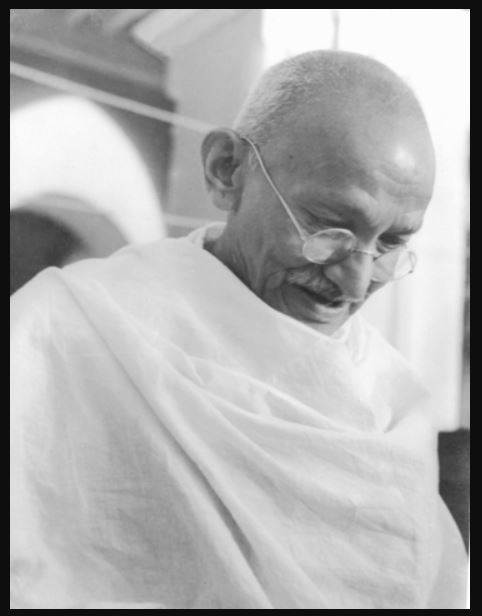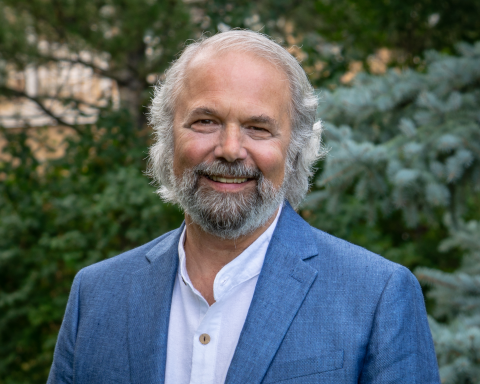What Is Prayer?

If you asked 100 people this question, you might get 100 answers.
For many, prayer is set firmly in a religious context. For Christians, it may be thought of as a prayer to God, to Jesus, or to Mary.
“Hail, Mary, full of grace…”
“Most sacred, most loving Heart of Jesus…”
“Our Father which art in heaven, Hallowed be thy name.”

Whatever your belief, perhaps you can feel the reverence, honor, and love behind the words.
Here is the beginning of a common Jewish prayer:
Blessed are you, Lord, our God, sovereign of the universe.
And here is a poem from Islam:
“Peace be on you and the mercy and blessings of Allah.”
This is a greeting prayer for Muslims. The one speaking is praying over the one receiving the prayer.
Prayer Outside of a Religious Context
But prayers don’t have to be set in a strictly religious context, or even a spiritual one. Here is a part of a simple prayer of gratitude, welcoming the response of a friend. It is from the writer James Whitcomb Riley:
Let us be thankful for the loyal hand
That love held out in welcome to our own.
There is no explicit mention of Deity. But you can feel the reverential tone of the words.

And here is Mahatma Gandhi’s Prayer for Peace, which is a deeply spiritual offering in relationship to another person:
I offer you peace
I offer you love
I offer you friendship
I see your beauty
I hear your need
I feel your feelings
My wisdom flows from the highest source
I salute that source in you
Let us work together
For unity and peace.
A prayer may be in a pre-determined form, recited over and over again by the person who is praying. Or it can be totally improvised in the present moment by the one offering it.
What Makes a Prayer a Prayer?
So if a prayer doesn’t have to be in a strictly religious context or even a spiritual one, what makes a prayer a prayer?
Different people might have different answers. And some would have no answer at all. Some might pray to the Holy Spirit. Others to Shiva. Some chant mantras. Others write their prayers on pieces of paper they wedge into an ancient wall in Jerusalem.
Some walk through the woods and talk to the nature spirits.
Ultimately, prayer is an entirely personal choice. It may be influenced by culture, religion, and history. But no one can make a person pray in a certain way. And no one can stop the prayers a person utters in their heart of hearts.
While the outer form of a practice of prayer can be described, the essence of prayer defies definition. And still, we might wonder, What are the qualities that appear in prayers around the world? What are the universal qualities of prayer?
Qualities of Prayer
Praise
Prayers often praise, celebrate, and honor the one who is being prayed to.
Gratitude
Whether it is for the nourishment of food, good fortune, a relationship, or for God, prayers can express appreciation for what we receive as human beings.
Desire
Prayers can be an admission of deep desires of the human heart, and an expression of those desires.

Request
Prayers often ask for something—from God, from the world, or from others. Jesus said this about asking:
Ask, and it shall be given you; seek, and ye shall find; knock, and it shall be opened unto you.
Emotion
It is hard to imagine a prayer that never arouses any emotion. So while the words of a prayer are important, the feeling response that it engenders is what gives it power.
Affirmation
Prayer can affirm what a person knows to be true in essence, even if it has not yet manifested in the world. It can express faith in the potential for a person’s life. Or faith in the creative power of God.
Offering
People pray to offer something to God, other people, or the world. Throughout history, there have been ritual practices in which people offer gifts to God, and prayers that accompany those rituals. Prayers can be an offering of devotion to the object of the prayer.
Attunement
The practice of prayer can bring an experience of Attunement with the object of the prayer. It can deepen the relationship with the one to whom the person is praying. And it can allow the prayerful person to feel more resonant with that one.
Sacredness
Sacredness is one of those words that is difficult to define. But we know it when we experience it. It might be related to something in which there is religious belief—God by whatever name, the Holy Spirit, Jesus, an archangel, or another spiritual entity. And it might simply be a heightened awareness that life, and all the elements of life, are holy.
Prayer can invoke an awareness of the sacred.
Conversation
Prayer can be a conversation with God. There are the words of prayer offered by us as human beings. But then there can be a listening, so that we hear what the Divine is saying to us, in whatever way it is.
To Whom Do People Address Their Prayers?
Often, people pray to God, or the god of whatever religion they practice. But do people always pray to God? The truth is that it is more complex than that.
Many Christians offer their prayers to sacred figures of their religion, addressing them by many different names— Savior, Father, El Shaddai, and many more. They may pray to spiritual beings who were once in human form— Jesus Christ, Mother Mary, and the Saints.
People of indigenous cultures pray to spiritual entities and to ancestors.
Around the world, prayer practitioners address themselves to people to pray for their healing, blessing, well-being, or good fortune. Often, such prayers invoke divine power in some way. And there is the common expression, to pray over someone.
The simple prayerful declaration, Peace be unto you, offers a prayer for peace to another.
A Christian Science practitioner, Keith Wommack, tells this story of a simple prayer addressed to a person asking for healing:
After church, my phone rang. It was a man asking for Christian Science treatment through prayer. He wasn’t familiar with Christian Science, yet had heard that it healed. He was suffering physically. To my surprise, the first words out of my mouth were, “You’re safe in God’s pocket.” He began to cry and hung up, without giving his name. A week later, that man called back to report that he’d been healed of the physical situation he’d called me about—the instant he’d hung up the phone.
Does that simple, seemingly casual statement, “You’re safe in God’s pocket,” qualify as a prayer to you? Apparently, it did for the man who received it.
What Is Attunement Prayer?
Attunement is a conscious spiritual practice that assists a person to tap into the inner source of love, wisdom, personal power, and life energy. It is based on the principle that the quality of our thoughts affects the quality of our emotions. And that a person can learn to let their thoughts and emotions connect them to the Spiritual Presence and power within them.
Attunement is also an energy medicine practice, like Healing Touch, laying on of hands, or Reiki. The Attunement practitioner allows the life force moving through their hand to activate the energy centers in the person receiving the Attunement. The relationship between the practitioner and the recipient creates an energetic arc. The healing powers of that arc attune the human energy field of the recipient.

The purpose of Attunement as an energy medicine practice is the spiritual healing of the recipient and the world.
Since the first Attunement was shared by Lloyd Arthur Meeker in 1929, practitioners have utilized prayer in the Attunement process. Often at the end of the Attunement session, the practitioner speaks words of gratitude that invoke Divine Presence and magnify the healing power of the Attunement.
Attunement Prayer relies on the underlying principles of Attunement as a spiritual practice. It evokes a conscious awareness, in thought and feeling, of Spiritual Presence and power. And it opens the Attunement practitioner and recipient to the movement of that power to bring spiritual healing.
Simply put, Attunement Prayer brings an experience of Attunement with the great source of life within us. It harmonizes all the dimensions of our human experience—body, mind, emotion, and our spirit.
David Karchere
Attunement Teacher and Author
My name is David Karchere. I believe deeply in the power of Attunement Prayer to change a human life and to change the world. I am the author of Attunement: Opening the Sacred Power of the Endocrine Glands, a set of 49 Attunement meditations and prayers.

If Attunement Prayer practice interests you, I urge you to subscribe to my free weekly blog, Attunement Meditations. Each week, I explore how the quality of our thinking and feeling affects our Attunement with the Divine Presence and power within us.
If Attunement Prayer practice interests you, I urge you to subscribe to my free weekly blog, Attunement Meditations. Each week, I explore how the quality of our thinking and feeling affects our Attunement with the Divine Presence and power within us.









